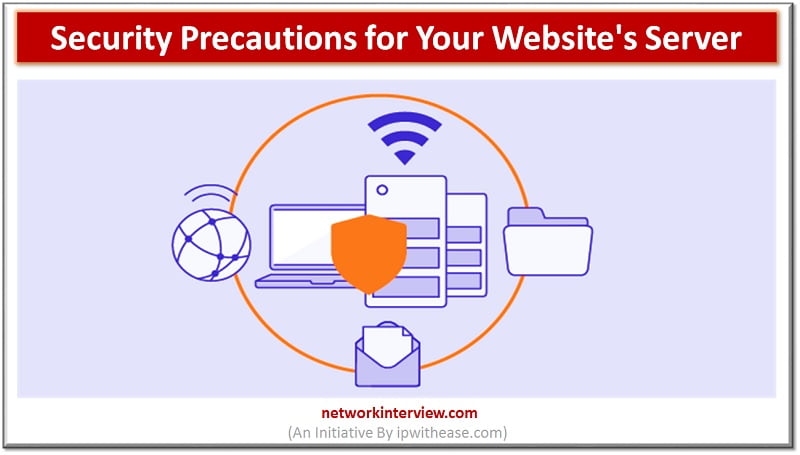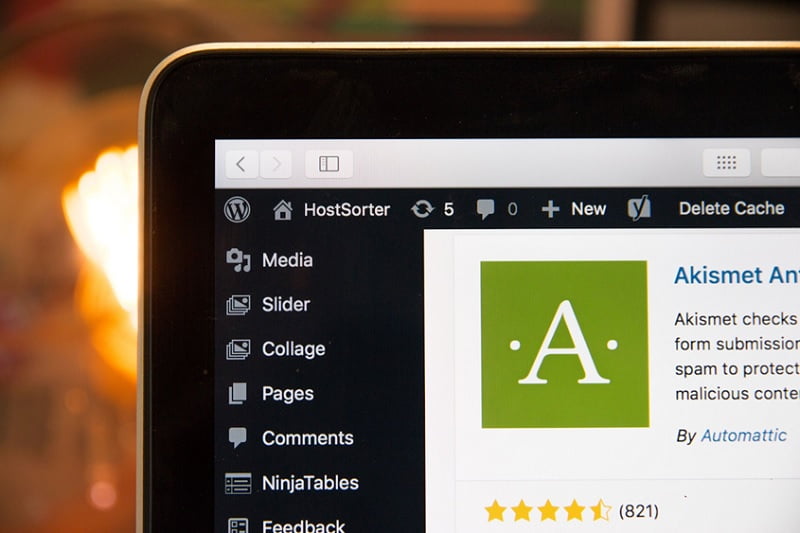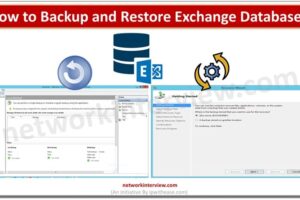
7 Essential Security Precautions for Your Website’s Server
Introduction
Your website’s server isn’t just a device you use to run your website. It’s also a device that’s designed to share your website’s information with others, no matter who they are. This is how users can find and access your website.
Therefore, it isn’t surprising that a web server is one of the first places hackers will target. The most common cyber attacks are SQL injection and DDoS attacks, which can do some serious damage.
However, sometimes simply forgetting to install the latest security patches can also put your website at risk. If your website doesn’t have the proper precautions and preparations to handle cyber attacks, you’ll find yourself in lots of trouble.
So what can you do to minimize the chances of a security breach? This article will give you seven essential security precautions you should use for your website’s server.
Let’s get started.
1. Choose a Secure Web Host

(Image is taken from Unsplash.com.)
The first step to taking security precautions begins with choosing the right web hosting provider for your website. This is vital because they will be responsible for hosting your site and ensuring its security.
Thus, you’ll want to choose a hosting provider with additional security measures included in their hosting plans. Some of the security features they should provide include:
- Distributed denial of service (DDoS) protection.
- Advanced firewall protection.
- Automatic, frequent backups of your website’s data.
- A free SSL certificate.
- Antivirus and malware scanning and removal.
Hostinger is a good example of a hosting provider that includes these security features in most of its hosting plans.
2. Limit Access to Server
It’s always a good practice to limit access to your servers. Only the system administrator and approved trained technical personnel should be able to access them.
You should also include a Secure Shell Protocol (SSH) to provide you secure access to your server’s command line in case you want to manage or modify the operating system or its settings.
Also, create a whitelist of IP addresses that are allowed to access the server. This means that you should include the IP address of all of your websites on the server.
3. Use Strong Passwords

(Image is taken from Unsplash.com.)
This precaution is critical, highlighted by the fact that most employees work from home and use their own devices. This means that the likelihood of a security breach is higher because more devices are connected to your web server.
With the added fact that most data breaches happen because of weak or stolen passwords, enforcing solid password practices isn’t enough. You’ll also need to change the passwords regularly.
Luckily, some tools can help you create and memorize passwords quickly. You can use a password generator to develop new and secure passwords. Then, store them in a password manager.
Thus, you’ll only need to memorize one master password that lets you access your other passwords. Tools like LastPass, Dashlane, and 1Password are known to provide these two services.
4. Use Secure Connections
Another essential security precaution you should take is using secure connections. This allows you and your customers to exchange information without fearing a security breach midway through the data transfer.
To do this, you can use a Secure Socket Layers (SSL) protocol to encode and secure the sensitive information that’s being transmitted. The SSL protocol can also be used to secure customer’s payment details, so it also helps make the checkout process safe.
SSL certificate is a must-have on your website because web browsers, like Google Chrome and Mozilla Firefox, will mark any website without an SSL certificate as unsafe and potentially harmful.
Luckily, hosting providers usually provide a free SSL certificate as an add-on when you purchase one of their hosting services. Do check to ensure that you actually get one though.
5. Educate All Employees

(Image is taken from Unsplash.com.)
Since 95% of security breaches happen because of human error, your employees must know your company’s best security practices and cybersecurity policies they should follow.
If you don’t have good cybersecurity policies, some websites can help you document them and help train your employees. Those are:
- International Association of Privacy Professionals
- SMESEC
- Small Business Administration Cybersecurity
It’s a good idea to have your employees do security training and sign a document stating that they’ve completed the training and have understood what happens should they fail to comply with the security policies.
6. Keep the System Updated
Hackers love finding security flaws in your system. They take advantage of the software vulnerabilities they can find and write malware code to enter through the security hole.
To prevent such things from happening, software developers are continuously looking and patching these security holes to prevent hackers from entering. They then release regular system updates to patch up the vulnerabilities.
It’s recommended to regularly check and update your system because it makes it harder for hackers to enter.
7. Backups

(Image is taken from Unsplash.com.)
It’s a good practice to backup your website even though you’ve implemented multiple security measures to your website. You can never be too safe, as accidents can still happen.
When those accidents occur, you don’t have to worry too much because you’ve backed up all of your valuable data from your website on a secure cloud server. Make sure that your backup isn’t stored in the same place as your website.
Luckily, you don’t have to worry too much about doing the regular backups yourself because most hosting providers usually provide regular automated backups as an add-on to a hosting plan you purchased. So all you have to do is set the backup frequency.
Conclusion
Your website’s server plays a crucial role in sharing your website’s content with people on the internet. So it’s not surprising that most hacking attacks are targeted towards your web server.
If no precautions are taken, your website will be exposed to malware and other attacks, which can render your website unavailable.
Let’s recap on the seven essential security precautions you should take:
- Choose a secure web host
- Limit access to the server
- Use Strong Passwords
- Use secure connections
- Educate all of your employees
- Keep the system updated
- Do regular backups
All that’s left to do is implement these measures to your website and your site’s server. Hopefully, this will reduce the risk of any security breaches and keep your website safe.
Good luck!
Continue Reading:
Top 10 Cybersecurity trends for 2021
Types of Firewall: Network Security
Tag:services



